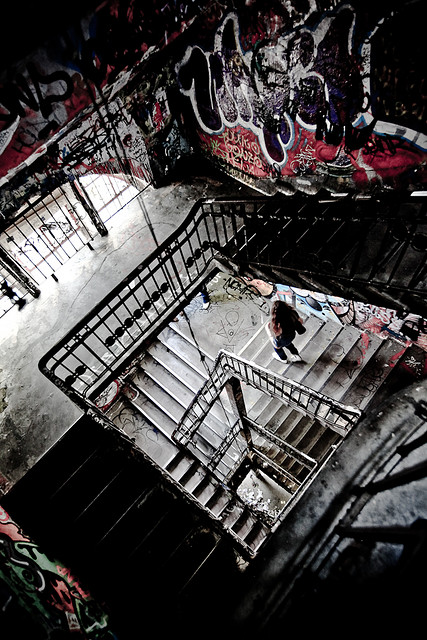The Greek myth of Orpheus hints at the paradoxical relationship between creativity and anguish. Orpheus was the one mortal whose musical ability was as great as that of the gods. The renowned lyre player fell in love with the maiden Eurydice and the two were married. Shortly after the wedding, Eurydice was stung by a serpent and died; Orpheus, unwilling to accept her death, decided to descend into the underworld to rescue her. The gods were touched by the musician’s plea and released her from Hades on the condition that he did not look at her face until the two had returned to the world of the living. They climbed back up towards the surface of the earth, but as they approached the cavern’s end, Orpheus turned back to ensure she was near him, and then she fell into the darkness and was lost to him forever. He tried to follow her, but the gods would not allow him to enter the land of the dead for a second time. Forsaken, he wandered alone, playing his lyre with ever more beauty and intensity until discovered by a band of frenzied Maenads who tore apart his body.
The tale of Orpheus underpins Robert Lepage’s brilliant theatrical production Needles and Opium, playing in Toronto this week. Lepage, one of the world’s greatest experimental theatre directors, is well-known for his improvisational method, technical wizardry and continuous refinement. I first saw Needles and Opium in the mid-1990s; this latest version is even more poignant and focused on the drama of artistic creation. The play tells the story of a lovelorn actor who goes to Paris and is beset by the spirits of the Surrealist Jean Cocteau and the musician Miles Davis. Cocteau travelled to New York and Davis went to Paris at the same time in 1949. Throughout the play we hear passages from Cocteau’s A Letter to Americans and Opium, the Diary of a Cure and music from Davis’ film music for Ascenseur pour l’echafaud (Elevator to the Gallows).
When Davis first stayed in France he was surprised by how little racism he experienced. During his time there, he fell in love with the actress and singer Juliette Gréco. The French philosopher Jean-Paul Sartre, a friend of both, encouraged Davis to marry Gréco, but the musician refused, saying that he did not want her to have to go through the experience of being part of a mixed-race couple in the United States. Davis returned to the U.S. but became a drug addict; the play suggests that the seduction of opiates lay in the attempt to alleviate the pain caused by the loss of Gréco and the tragic social contradictions which led to that loss.
Eventually the great artist would overcome his drug addiction, come back to Paris in 1957, and record the romantic, tender music for Ascenseur pour l’echafaud, an album made as an improvisational response to film sequences, including one of a beautiful young woman wandering alone through the streets of the city. An elevator to the gallows is of course a powerful metaphor for the plight of Davis, of Orpheus, of all artists, and it serves as a moving backdrop for Lepage’s inspired and stunning play.
Thomas Ponniah is an Affiliate of the David Rockefeller Center for Latin America Studies and an Associate of the Department of African and African-American Studies at Harvard University.
Photo: Stefano Corso/flickr



